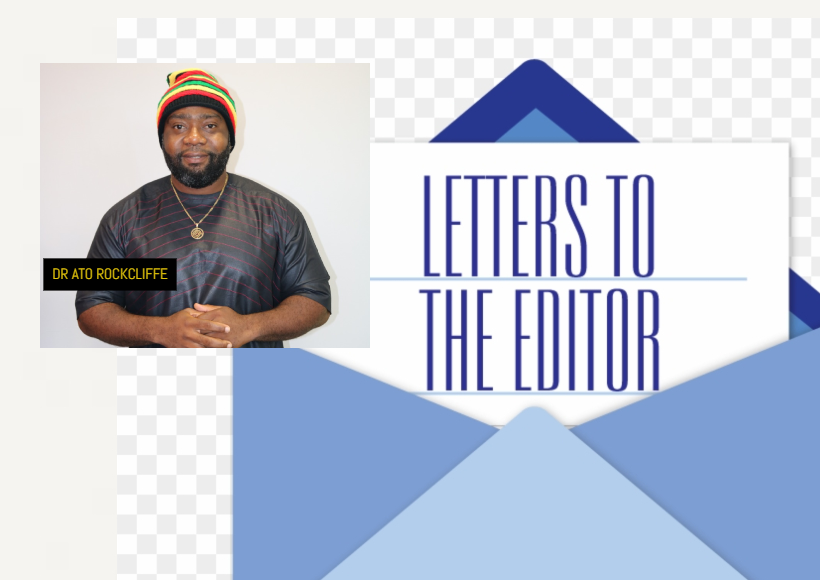Dear Editor,
I write in response to the piece published on November 23, 2024, which affirmed the honouring of Eze Rockcliffe, my father. I was deeply moved by the article, as it recognized his remarkable contributions to culture and the music industry. As someone who has had a front-row view of his journey for nearly four decades, I have witnessed the highs, the lows, and the sacrifices that sustained not only his band but also his efforts to enrich the cultural fabric of our nation. For this recognition, I am profoundly grateful.
I extend my thanks to Ms. Wilburg for shedding light on this critical issue—one that, in my view, is more significant than many may realize. Since the passing of Dr. Cheddi Jagan, no administration, in my estimation, has fully grasped the importance of culture as the soul of a nation. The oft-quoted sentiment attributed to Plato and revived by Andrew Fletcher—“Let me make the songs of a nation, and I care not who makes its laws”—captures this truth eloquently. While the statement may seem hyperbolic when taken literally, its underlying message is unmistakable: a nation’s strength and identity are deeply rooted in its culture.
While I admit my biases, I do not believe they disqualify me from contributing to this discourse. I agreed with much of Ms. Wilburg’s argument but wish to address two points: one of disagreement and another of omission.
First, I challenge the notion that Guyana needs a singular sound. Given our rich multicultural and multi-ethnic heritage, a single national sound may be neither feasible nor desirable. History shows that many iconic musical genres, such as rhythm and blues, hip-hop, reggae, and soca, emerged through cross-pollination with other styles.
Similarly, Guyana’s diversity may best be reflected through a mosaic of sounds and sub-genres—the way Trinidad and Tobago has soca and chutney-soca—rooted in both ancestral and contemporary influences. The lyrics of the song cited in the article rightly emphasize the importance of history as a source of strength and guidance. As Guyanese, our individual histories may begin in different places but converge to form a shared national identity. For instance, as a Guyanese of African descent, I love my foofoo but cannot imagine life without curry or pepper pot. I revel in the rhythm of the djembe while cherishing the essential sound of tassa.
Second, the article overlooked an essential issue: self-love. Colonized peoples often grapple with self-love, a struggle compounded in contexts of neo-colonialism, racial marginalization, and economic hardship. In Guyana, this manifests as a pervasive difficulty in appreciating our own cultural and artistic expressions. Music and the arts, in particular, bear the brunt of this struggle. Sport may seem an exception, but a closer analysis reveals similar dynamics. International competitions and foreign athletes attract far greater attention and support than local endeavours.
Reverting to the arts, particularly music, I recall my dismay when a prominent company sponsored a major 50th Independence celebration with a line-up dominated by Jamaican artists. While I deeply value Caribbean unity and reggae music, this decision was emblematic of our preference for the foreign over the local. The justification from the company if pressed, is likely to be – It’s what the people want, reflects an unfortunate truth.
However, as Eddy Grant, one of Guyana’s greatest musicians, once observed, our cultural industry will remain stagnant unless we learn to love ourselves with urgency and pride. He used the word alacrity. I suspect his analysis is spot on.
To surmise, I thank Ms. Wilburg for bringing attention to this overdue recognition of my father’s contributions. I am deeply grateful to the University of Guyana and all those who made this honour possible. However, this moment should not stand alone.
Systematic and strategic investment from both the government and the corporate sector is imperative to nurture our artistic and cultural industries. Equally important is fostering a critical consciousness among Guyanese to embrace self-love and to dismantle the outdated belief that white is right and foreign is better. As with the honouring of Eze Rockcliffe, the time for this cultural awakening is long overdue.
Humbly,
Brother Ato Rockcliffe













